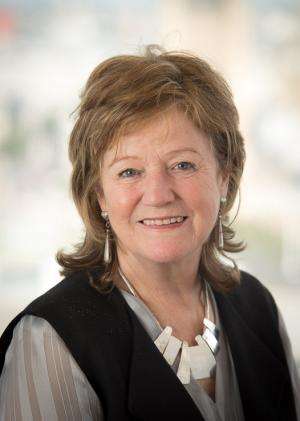Social workers could face court action for not reporting child sexual abuse disclosures

Published by Professional Social Work magazine, 20 October, 2022
Social workers and other professionals who fail to report a disclosure of child sexual abuse could be fined or even jailed in England and Wales, if the recommendations of a seven-year long inquiry are adopted.
The call comes in response to attempts by institutions to “cover-up” abuse and “prioritise their reputation or interests”, as outlined in devastating findings of The Independent Inquiry into Child Sexual Abuse.
The inquiry recommends that a Child Protection Authority should be set up in each country - with inspection powers over organisations that have contact with children - and a “redress scheme” providing compensation established for survivors.
There are also calls for a greater focus “politically and across society as a whole on protecting children from sexual abuse” backed by a public awareness campign.
More than 6,200 people gave evidence, and the chair, Professor Alexis Jay - a former social worker - described the scale of abuse uncovered as "horrifying and deeply disturbing". The inquiry found in many cases children were treated “as commodities at adults’ disposal to do with as they wished”.
Survivors highlighted the devastating and profound impact on their lives: physically, mentally, emotionally and educationally, as well as reduced employment prospects and relationship problems.
The report stated: “The deviousness and cruelty of perpetrators was limitless. Children were threatened, beaten and humiliated.
“The protection of personal and institutional reputations above the protection of children was (the) frequent institutional reaction.
“Statutory agencies were not informed, perpetrators were ‘moved on’ and there were failures by those in authority to thoroughly investigate allegations."
In the Roman Catholic Church, more than 3,000 complaints about more than 900 individuals were received between 1970 and 2015.
The inquiry said: “Responses to disclosures about child sexual abuse have been characterised by a failure to support victims and survivors – in stark contrast to the positive action often taken to protect perpetrators and the reputation of the Church.”
Abuse in schools and care settings by “predatory residential staff and foster carers” were also highlighted.
Only seven per cent of people disclosing abuse to the inquiry’s Truth Project said the police were informed.
A previous attempt to mandate professionals to report a disclosure or witness of abuse was ruled out following a government consultation in 2018 which concluded the case for mandatory reporting had “not currently been made”.
The inquiry report noted there were concerns about professionals being forced to break confidentiality when a child makes a disclosure.
It also acknowledged the risk of mandatory reporting discouraging children from disclosing sexual abuse “for fear of the potential consequences for them, for their families and potentially for their abuser”.
However, the inquiry states: “The countervailing consideration is the significant public interest in reporting, investigating and prosecuting perpetrators of child sexual abuse and protecting other children from harm.
“If abuse is not reported in this way, perpetrators may continue to abuse. Child sexual abuse is a crime that is known to be under-reported. The prevention of abuse in the future is of the utmost importance.”
Phil Frampton, a member of Survivors of Organised and Institutional Abuse, said a key issue is what happens once a professional has reported a disclosure of child sexual abuse.
“I agree with mandatory reporting because it is not only about that child,” he said. “Other people may be at risk as well.
“The issue is what happens with the information once reported. When someone says don’t tell anyone, it is a question of who that anyone is.
“Different things can be done with that information. If it is felt it needs to go forward then that child needs to be informed. It should be a nuanced approach that takes into account as far as possible the wishes of the young person.”
BASW welcomed the recommendations, though added that some, if implemented, “will have a direct impact on social work practice, notably the recommendations for mandatory reporting and the recommended amendment to the Children Act 1989”.
The Association of Directors of Children’s Services also highlighted concern over mandatory reporting.
President Steve Crocker said: “There are a number of recommendations which will have implications for the sector and we await the government’s response to some of these, such as mandatory reporting and the creation of a Child Protection Authority.”
The report’s other recommendations include:
- Creating a Cabinet-level minister for children
- A public awareness campaign on child sexual abuse
- Banning the use of pain compliance techniques on children in custodial settings
- Amendment of the Children Act 1989 to give parity of legal protection to children in care
Professor Jay paid tribute to the “thousands of victims and survivors” who gave evidence to the inquiry.
She said: “As chair, I observed first-hand the courage and bravery of so many who spoke candidly about the shocking acts perpetrated against them.
“I urge the UK government, the Welsh government and all other relevant institutions to implement promptly the inquiry’s recommendations which are designed to protect children from sexual abuse in the future.”
